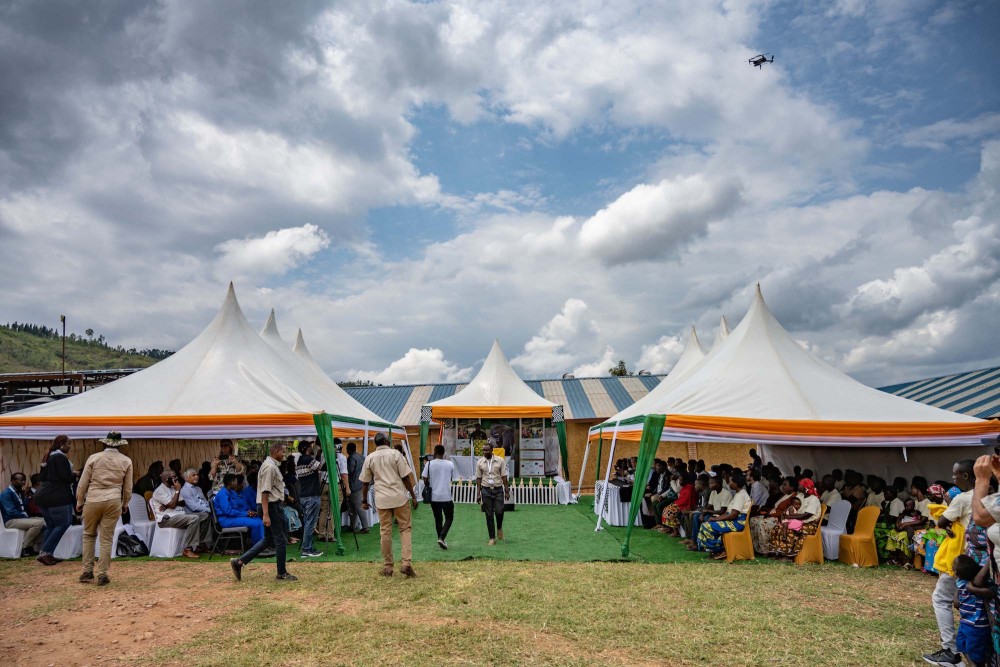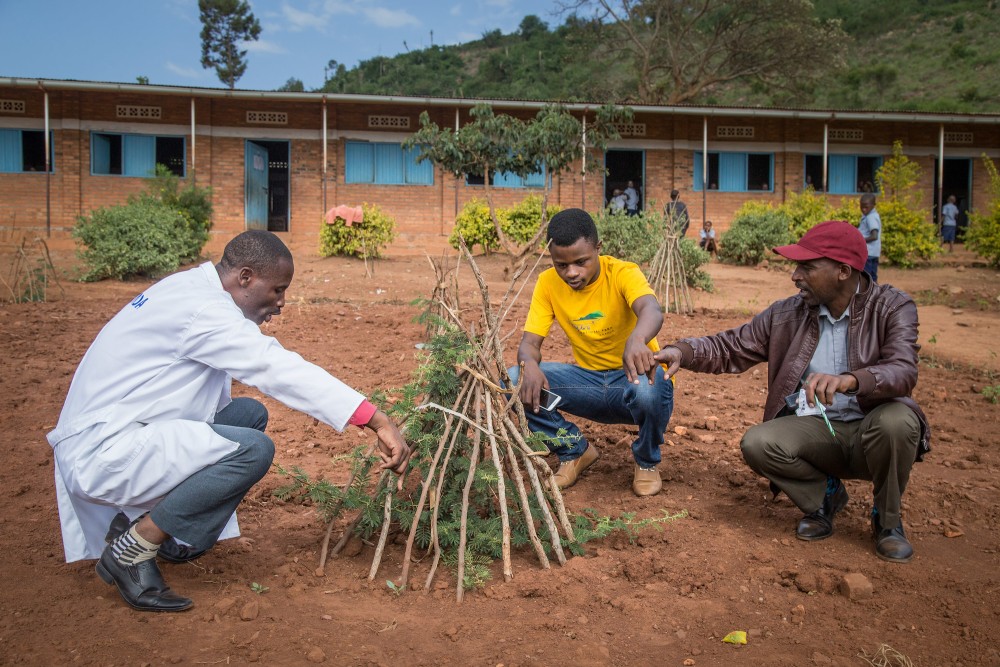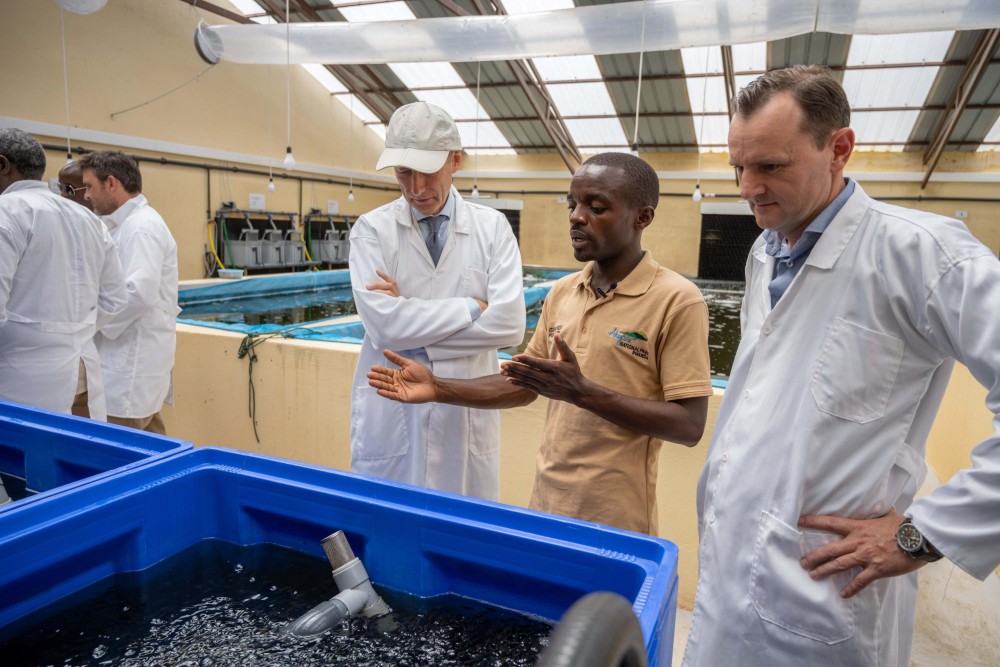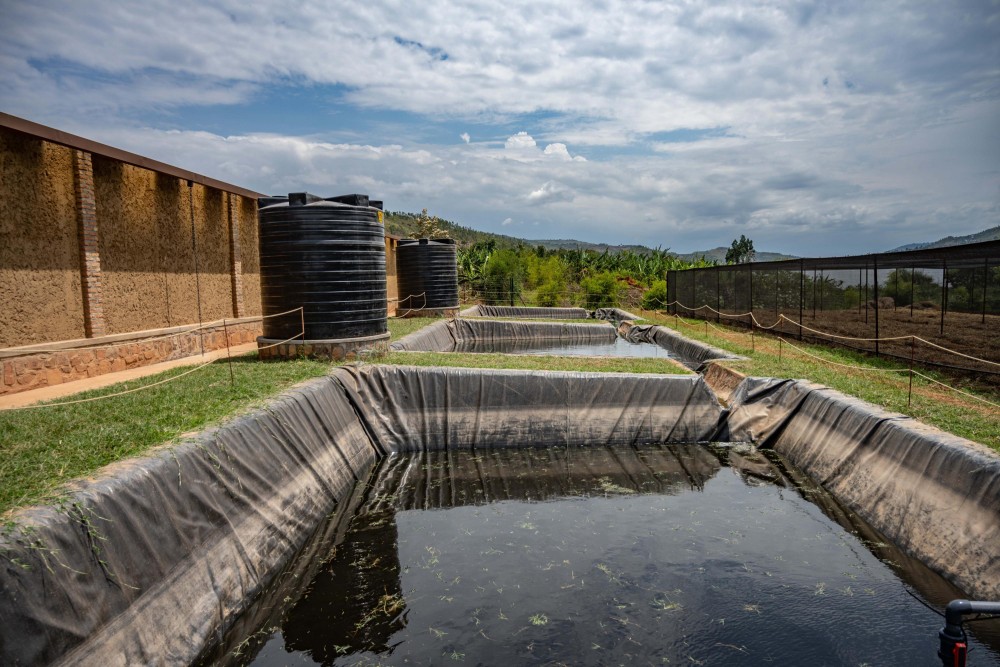Through its community development strategy, Akagera National Park is increasingly interwoven into the fabric of its neighbouring communities. Working with the more than 500,000 people living in these areas is critical to the park’s long-term viability. More than ten years of community development and ensuring that the park delivers tangible benefits to the local communities has made Akagera a source of pride and a valued asset in the region.
Community Engagement
 © Gael Ruboneka Vande Weghe
© Gael Ruboneka Vande WegheAkagera plays a key role in communication and engagement, from the government level to village meetings where two-way conversations take place. Over 6,000 community members participate annually in gatherings to discuss conservation and human-wildlife conflict issues, and engagements with cooperatives to assist in business development. Sporting events are regularly hosted by the park – for example, the 2022 Rhino Velo Bike Race, Lions Football Cup and Rhino Footrace – attracting thousands of spectators, and building goodwill and positive relations.
Education and Environmental Awareness
 © Scott Ramsay
© Scott RamsayIn addition to building and supporting schools, Akagera educates local schoolchildren on the importance of biodiversity, which is critical to creating a constituency for conservation. The park has hosted regular environmental education awareness sessions each year, with over 1,500 students and teachers from 55 schools bordering the park visiting in 2022. Regular Eco-Club teacher training and Eco-Club events help convey strong conservation messages to thousands of adults and children.
Sustainable Enterprise Development
 © Gaël Ruboneka Vande Weghe
© Gaël Ruboneka Vande WegheAkagera’s income-generating activities enhance the acceleration of economic development, and includes projects such as honey harvesting, a fishing cooperative, and a women’s chicken cooperative. Overall, nearly US$1 million of economic activity flowed from the park into the surrounding communities in the form of revenue sharing, casual wages, local purchases, rentals and payments in 2022.
When African Parks assumed management of Akagera in 2010, the park employed 59 people. Today, over 300 full-time staff are employed – the vast majority from local communities. The injection of funds into local economies via park staff salaries and the purchasing of local materials and services strengthen community ties and ensure the park’s long-term sustainability.
One of Akagera’s mandates is to create sustainable socio-economic enterprises that alleviate poverty and enhance the livelihoods of local communities. Gishanda Fish Farm, launched in 2022 in collaboration with FoodTechAfrica and supported by the Rwandan and Dutch governments, is a flagship project that offers community members an accessible protein source of tilapia, while enhancing sustainable farming methods and providing new skills and jobs.
Thanks to Gishanda, two villages were electrified; a primary school constructed, which receives clean water from the farm’s boreholes; eight permanent jobs and regular casual jobs were created; and a community-run organic vegetable farm, fertilised by the farm’s wastewater, was established.
Community Infrastructure Development
 © Gael Ruboneka Vande Weghe
© Gael Ruboneka Vande WegheInfrastructure projects that improve the quality of life for local communities have expanded year on year. Such projects include: constructing schools, health centres and libraries; building water-provision sites; and helping develop local associations and small enterprises. 2022 saw a new community library completed, 1,000 books received from Book Aid International, and 33,000 indigenous trees planted along roads, at schools and in villages.
